684465
[6,6]-Phenyl C71 butyric acid methyl ester
99%
Sinónimos:
3′H-Cyclopropa[8,25] [5,6]fullerene-C70-D5h(6)-3′butanoic acid, 3′Phenyl-3′H-cyclopropa[8,25] [5,6]fullerene-C70-D5h(6)-3′butanoic acid, methyl ester, [70]PCBM
About This Item
Productos recomendados
Quality Level
assay
99%
form
powder
solubility
chlorobenzene: soluble
organic solvents: soluble
toluene: soluble
orbital energy
HOMO 6 eV
LUMO 3.9 eV
semiconductor properties
N-type (mobility=0.1 cm2/V·s)
SMILES string
COC(=O)CCCC2(c1ccccc1)C34c5c6ccc7c8cc9Cc%10cc%11cc%12Cc%13cc%14c%15ccc6c3c%15c%16c%17c%18c%19c(c(c57)c8c%20c9c%10c%21c%11c%22c%12c%13c(c%14%16)c%18c%22c%21c%19%20)C24%17
General description
Application
Storage Class
11 - Combustible Solids
wgk_germany
WGK 3
flash_point_f
Not applicable
flash_point_c
Not applicable
ppe
dust mask type N95 (US), Eyeshields, Gloves
Elija entre una de las versiones más recientes:
¿Ya tiene este producto?
Encuentre la documentación para los productos que ha comprado recientemente en la Biblioteca de documentos.
Los clientes también vieron
Artículos
Since the first publication in 1995 describing a bulk heterojunction photodiode incorporating a methanofullerene, significant progress has been made in improving device performance and the scope of device research has broadened widely.
The field of organic electronics has emerged as the next-generation technology potentially enabling ultra-thin, large-area, and/or flexible devices, consisting of organic field-effect transistors (OFETs), organic light-emitting diodes (OLEDs), and organic photovoltaics (OPVs).
The emerging organic photovoltaic (OPV) technology is very promising for low-cost solar energy production. OPV devices can be produced using high-throughput, large-volume printing methods on lightweight and flexible plastic substrates, making them easy to deploy and use in innovative ways.
The emerging organic photovoltaic (OPV) technology is very promising for low-cost solar energy production.
Nuestro equipo de científicos tiene experiencia en todas las áreas de investigación: Ciencias de la vida, Ciencia de los materiales, Síntesis química, Cromatografía, Analítica y muchas otras.
Póngase en contacto con el Servicio técnico![[6,6]-Phenyl C61 butyric acid methyl ester ≥99%](/deepweb/assets/sigmaaldrich/product/structures/359/221/d990c746-0960-4c69-bf76-fe09b193824d/640/d990c746-0960-4c69-bf76-fe09b193824d.png)
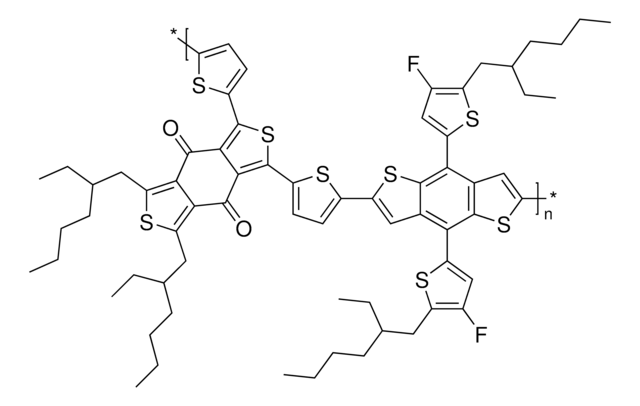
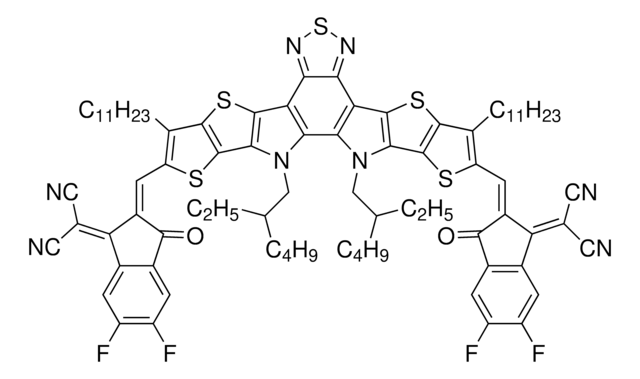
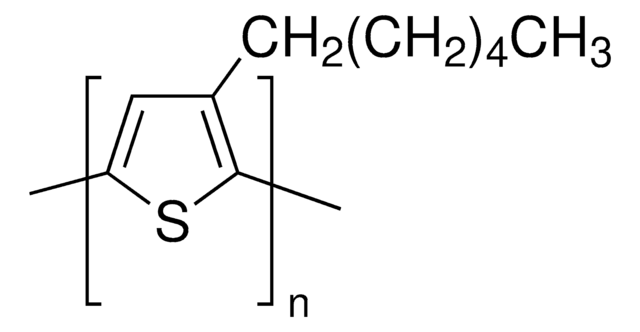
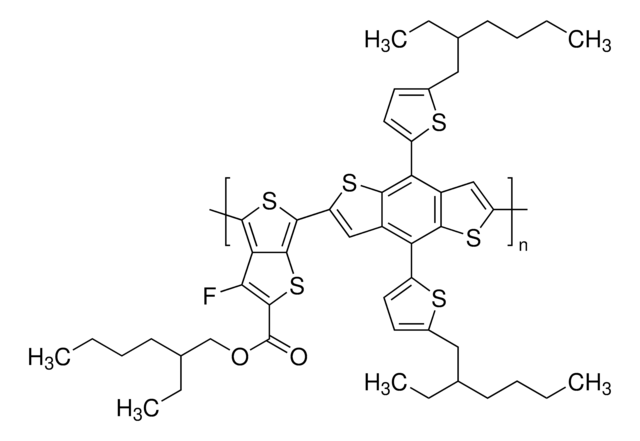

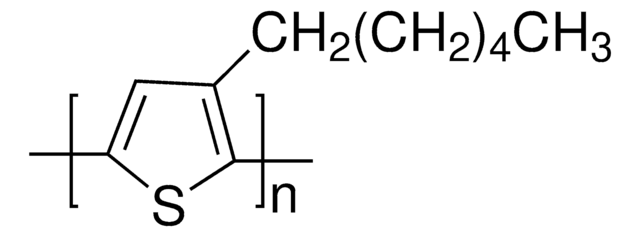
![1,1′-[4,8-Bis[5-(2-ethylhexyl)-2-thienyl]benzo[1,2-b:4,5-b′]dithiophene-2,6-diyl]bis[1,1,1-trimethylstannane]](/deepweb/assets/sigmaaldrich/product/structures/611/912/a638a6fe-ca7b-4674-8023-df4c0921a9fd/640/a638a6fe-ca7b-4674-8023-df4c0921a9fd.png)

